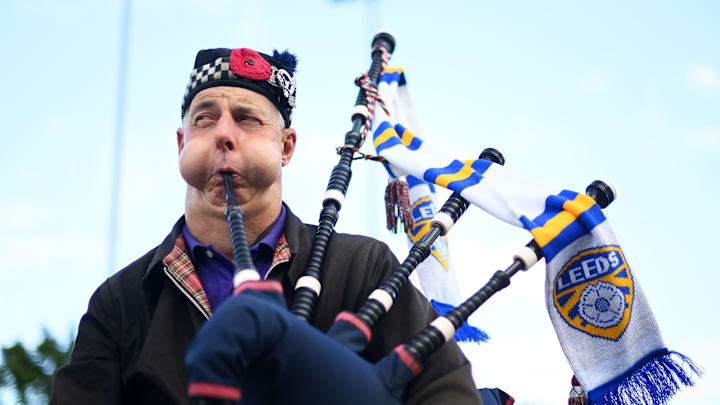There are certain traditions that accompany the funerals of law enforcement officials, first responders, or military personnel, including handing a widow (or widower) a folded American flag, playing “Taps,” and firing weapons in honor of the deceased. Maybe you’ve witnessed these firsthand; maybe you’ve caught them in movies or on television. But one component seems a little out of place: Irish or Scottish bagpipes being played, even if the decedent isn’t of Irish or Scottish descent. So how and when did this musical instrument establish itself in memorial services?
Bagpipes at Police and Firefighter Funerals
It helps to first understand that while bagpipes likely originated in Egypt, they’re most closely associated with both Scottish and Irish cultures. Scottish bagpipes move air from a bag that the piper blows up, while Irish bagpipes, or Uilleann bagpipes, have bellows. In Scotland, bagpipes were used to marshal forces on battlefields and intimidate the enemy. (Some Scottish soldiers carried a horn for that same reason.) Later, the bagpipes became part of weddings and other happy celebrations. Sonically, they can also take on a slower, mournful tone that matches the somber mood of a funeral.
The bagpipe became a presence at law enforcement funerals beginning in the 1800s and early 1900s, though how that happened depends on which side of the pond you’re on. In 1829, England’s home secretary—and future prime minister—Sir Robert Peel organized the Metropolitan London Police Force like a military unit. A number of officers were Irish; commanders were primarily British, who had also adopted Scottish bagpipes for military use. Bagpipes for fallen service members therefore made sense.
In the United States, however, the tradition might be rooted in part in prejudice. Irish immigrants were a persecuted class in the early to mid-1800s owing to a stereotype that immigrants were violent. It wasn’t until politicians noted the strengthening numbers of Irish that they began to court them with job opportunities in the hopes they could win their vote. As a result, many Irish people took jobs in law enforcement. At their funerals, honoring their Irish culture with bagpipes was a given.
It’s also possible that early police departments—such as Boston’s—emulated British law enforcement groups and their traditions, which included bagpipes. In either case, the instrument soon became associated with memorial services.
That doesn’t mean they necessarily used Irish-style bagpipes, however. Because Scottish bagpipes tend to be louder and because funerals are typically held outdoors, Scottish wind instruments are better suited to the occasion.
If bagpipes were initially used for cities with large Irish contingents, how did it spread to other communities? In 2009, Slate speculated that the popularity of the bagpipe for funerals could have increased when they were used during the procession of President John F. Kennedy in 1963. Kennedy, who was of Irish descent, enjoyed a bagpipe performance by Scotland's Black Watch regiment days before he was shot and killed. His widow, Jacqueline, invited them to the ceremony.
Why Bagpipes Play "Amazing Grace"
At funerals, bagpipers typically play “Amazing Grace,” though the Scottish ballad “Balmoral” is also in rotation—the latter can be heard during funeral scenes in films like The Dark Knight (2008). “Balmoral” was written by Sir Robert Bruce, a Scottish soldier who fought in World War II and who composed the melody to honor soldiers who perished while imprisoned in the conflict. "Amazing Grace" is likewise spiritually stirring.
So where do pipers come from? They’re usually recruited from a professional bagpiping service to come and perform. But you don’t necessarily need a death to solicit one: Bagpipers also do weddings, parades, and other events, thanks to the bagpipe being a versatile instrument.
“It’s just marvelous sounds that bring out the emotion and it’s a very [respectful] sound,” Donald Willis, who played bagpipes in Ohio, said in a Coshocton Tribune article on the practice in 2005. “If you’re happy, it will bring it out. If you’re sad, it will bring out tears.”
Read More About Death:
Have you got a Big Question you'd like us to answer? If so, let us know by emailing us at bigquestions@mentalfloss.com.
